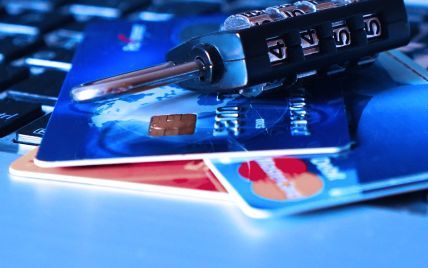
According to the National Bank of Ukraine, in 2023, cases of fraud with cards have become more frequent, and the amount of stolen funds has increased significantly.
Over the past year, the number of bank card fraud cases that caused Ukrainians to lose their funds increased by 25% compared to 2022, and the amount of losses increased by a whopping 73%. In total, these are 272 thousand transactions, with the help of which the attackers stole almost 833 million hryvnia from payment accounts.
The NBU reported this.
On average, for one illegal transaction, fraudsters embezzled 3,065 hryvnia, which is 39% higher than last year’s corresponding figure, which was 2,200 hryvnia. This “criminal demand” is partly due to the fact that the number of active cards in the country is constantly growing – it increased by 13% in 2023.
The most popular fraudulent schemes – how people lose money
Fraud on the Internet makes up the vast majority of recorded cases – 83% of the total number of cases. The rest – 17% – are criminal acts committed using physical devices (retail chains, ATMs, self-service terminals).
The National Bank emphasized that the vast majority of cases of fraud are situations in which clients of banking institutions transferred their personal data to third parties, thus providing them with information to access their accounts.
According to statistics, 80% of all losses last year were due to social engineering. In 2022, this figure was only 53%.
The most common social engineering scenarios in which attackers steal money from cards in 2023 are:
- sending fake messages about the possibility of receiving assistance from the state, social funds – clients follow the link and fill out the appropriate form, in particular, your personal data giving access to the account;
- production of an electronic SIM card or a client’s financial phone number – a person is asked for an access code to a mobile operator’s application, and then using the financial number, attackers gain access to Internet banking to illegally manage funds in the account (in particular, purchasing goods or receiving instant loans );
- a call from supposedly representatives of the bank in order to find out card details for accessing the account, supposedly in order to avoid blocking funds (CVV/CVC code, one-time passwords from SMS messages, etc.);
- messages in instant messengers and social networks about easy and quick profits – a person is offered to complete certain “tasks” on a social network or on some website, to make a “profitable” purchase that will provide additional attractive bonuses.
How to protect yourself from bank card fraud
The National Bank reminded that owners of payment cards must keep personal data that gives access to the account secret. In particular, you cannot disclose:
- card number – provided only for money to be transferred to it;
- card expiration date and three-digit code on the back side (CVV/CVC code) – are used only for making payments on the Internet as additional identification of the cardholder;
- one-time login passwords sent by a mobile operator or banking institution are not disclosed to third parties under any circumstances;
< li>other personal data.
The NBU also recommends not using non-personalized SIM cards as a financial phone number.
Recall that in Kyiv a man came up with a way to “free” buy up in shopping centers and make money from it.
